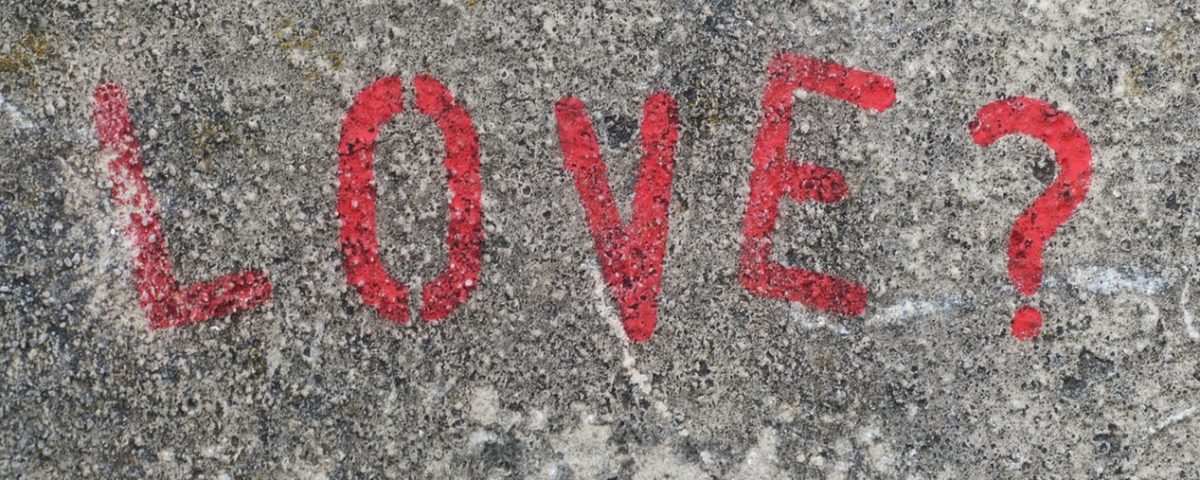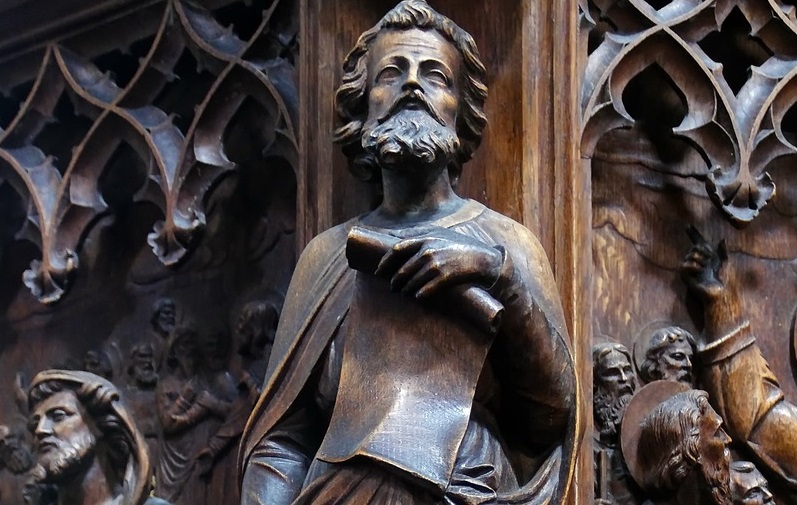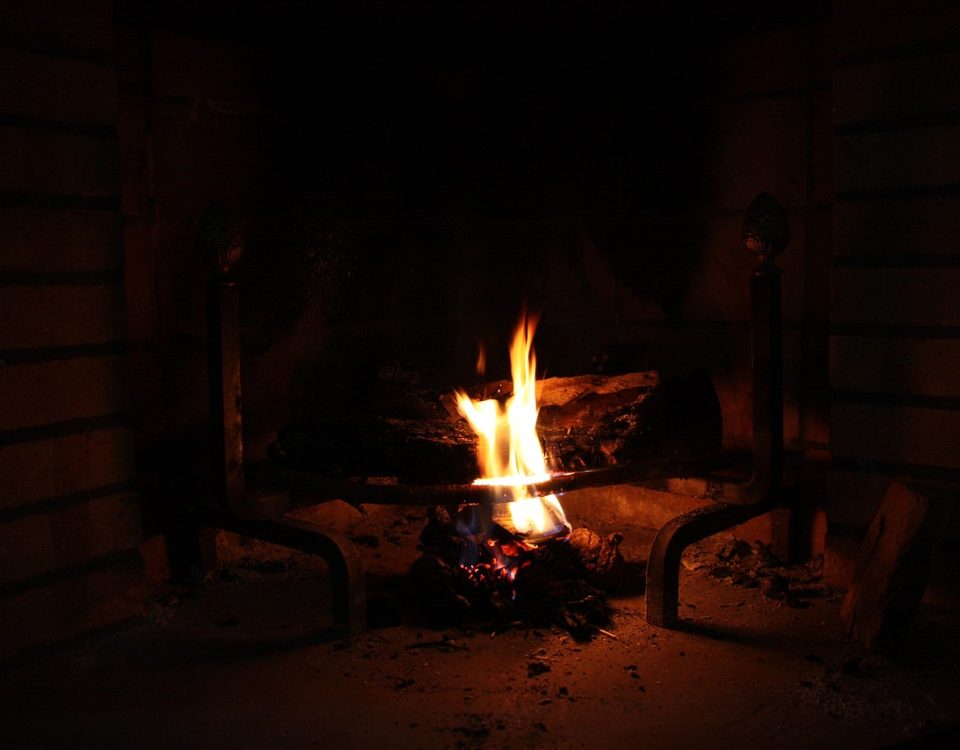To listen to this homily click here!
At the beginning, he made us in his image.[1] And he made us, it says in Genesis, for the simple purpose of companionship. “It is not good for the man to be alone,” God said.[2] So it was that in that paradise place there was shared a love between God and humanity and among humanity.
It was customary that woman and man and God walk together at the cool of the day—the original environmentalism, the original communion of the divine and the created.[3] This is the story we Jews and Christians tell. In the beginning was God and companionship and peace; and it was all held together by the fabric of the universe which is love—the uncreated love which is of God himself—the love which spoke first, the love which said, “Let there be…”[4]
It’s easy in this violent world to forget this, to forget our first love, the loving original intention of creation. Broken-hearted, surrounded by hatred, we can begin to believe that our world has always been hateful. We can begin to think that always from the beginning, as it says in the Psalms, “All have gone astray; all…are perverse.”[5] The world over, it seems we have come to believe violence and hatred more basic to the universe than love. Philosophies and governments have been built upon the premise that we are intrinsically distrustful and inherently hateful and violent. There is a way of viewing the universe that sees wars at every turn, an enemy in every person. It’s a way of viewing the universe which has forgotten paradise.
To put it another way: we have forgotten what it means to be human beings. In believing that hate is the more fundamental element of our lives than love, we have chosen to resemble those two ancient killers in the Old Testament, Cain and Lamech, in their sub-humanity of murder and violence.[6] It’s a tragedy, to quote Saint John Paul II, “rewritten daily…in the book of human history.”[7] Choosing to believe more in hate than in love, we have become disfigured, disabled in love.
So it is we live our lives between two false extremes: the romantic dreams of idealized love doomed to fail and the fevers of destruction and violence that seem sometimes without limit. We talk about love being forever and true and deep, but these words are almost always tragic, sentimental at best and nothing more. Almost always in the promise to love forever is the realization that it is not likely to be. Most of us are broken lovers, broken humans.
Yet, remarkably, we still talk about love. Even in our tragic pursuit of love, in our abuse and misuse of the words of love, we retain some albeit fragmentary and distorted notion of what love is. We pin our hearts on something: some love worldly things, some love other people in sometimes healthy or unhealthy ways; some love sex and power; some love money and luxury. We build our lives on these loves; we put our money where we love; we defend what we love; we sometimes hate for what we love. Whatever we do we do for love, however distortedly we perceive it. Even while hating we cannot stop trying to love. It’s what’s both hopeful and tragic about us, that although we seem always to love poorly, we’ve not lost the idea of love.
This is the reality of our lives: we’re wounded, confused lovers so often trapped by customary hatreds and irrational fears. We cannot get rid of the impulse to love, but at the same time we don’t know how to love. We’re disabled by the twofold blindness of sin and ignorance, unable to love ourselves or others aright. Which is why we need help, an example; it’s why we need grace to love well, to love truly. It’s why we need a gospel: for love’s sake.
A gospel which is, of course, simply this: turn the other cheek, don’t turn away the person who needs help, love your enemies—yes, even them. This is what Jesus is doing preaching non-resistance and generosity and love: he’s teaching us how to love again and how to be human beings again. To some this advice seems implausible and idealistic, but that’s because we’re so worn down and deformed by sin and hatred. Jesus came to us, teaching us to love God and our neighbors as ourselves.[8] And what that love looks like is love for even the wicked. Just as God loves you and I, sinners as we are, so too must we love our enemies, those who trespass against us.[9] We have been enemies of God, yet God loved us. What right do we have then to refuse to love our enemies? Even when he was suffering injustice, he didn’t curse his enemy, he didn’t retaliate; rather, he laid his arms down on the wood of the cross, promised paradise to the criminal next to him and forgave his executioner.[10] So what right do you think you have to hate? What insight or experience do you have that Jesus didn’t?
This is how God breaks into this broken world, by calling people in faith to risk love and turn the other cheek—so that there might be love somewhere, somehow in this dark world. And that’s the test, the challenge for you and me today. We are tied down by “the chain of hate, the chain of evil;” but as Dr. King preached once, “Somebody must have religion enough and morality enough to cut if off.”[11] That’s the challenge. I’m not interested in hearing your common sense interpretation of the radical teaching of Jesus Christ, your “Yes, but…” I’m only interested in whether you want to be saints, whether you want to be human again.
Because what else is the point of being a Christian? What’s the point of belonging to the Church? Why follow Jesus if not to learn how to love again? We believe that Jesus has shown us what it means to love, what it means to love God and our brothers and sisters in the very way we were meant to love, created to love. We believe Jesus shows us how. He shows us how to love and how to be human. And we believe that he helps us love the way he calls us to love, that he loves within us by his grace.
That’s why he remains with us in his Church: to help us and love within us. “Behold the lamb of God,” the priest says, holding before your very eyes the body and the blood, the presence of Jesus, the sacrament of love.[12] And what do you say? We’re supposed to say, “Say the word an my soul shall be healed;” just moments after we say, “Amen,” that is, “Yes, I get it. I accept it.” But what do we really say? What do you really say? What better wisdom do you have for Jesus? How do we know better than he? Do you eat this sacrament but refuse to listen, refuse to learn? What do you really mean when you say “Amen”? Have you ever really meant it?
We must learn how to love again because we’re getting it wrong. And we learn first by receiving him without thinking we know better. He is present here now, and he’s asking us to love our enemies now. And so how will you receive him, this Jesus telling us to love our enemies? Don’t be like the Pharisees, who in silent indignation began to plot the murder of Jesus because they thought they knew better. Do not be like them. Rather, receive him like an actual disciple, and then finally begin to love as you were created to love. Which is the only sort of love that will make a difference, that will change anything.
Now I get it that you may not get it. But in a very real way this is the decision of your life, the decision of our time. And so, we need to stop to think about it; we really do—whether you’ll love the way Jesus commands you to love. Because what that old poet said is true—for me and for you—that “[w]e can die by it, if not live by love…”[13] Amen.
[1] Genesis 1:26
[2] Genesis 2:18
[3] Genesis 3:9
[4] Genesis 1:3
[5] Psalm 14:3
[6] Genesis 4
[7] John Paul II, Evangelium Vitae 7
[8] Matthew 22:37-39
[9] Matthew 6:12 passim
[10] Luke 23:34, 43
[11] Martin Luther King, Jr., A Knock at Midnight, 57
[12] The Roman Missal
[13] John Donne, “The Canonization” (1633)
© 2020 Rev. Joshua J. Whitfield










